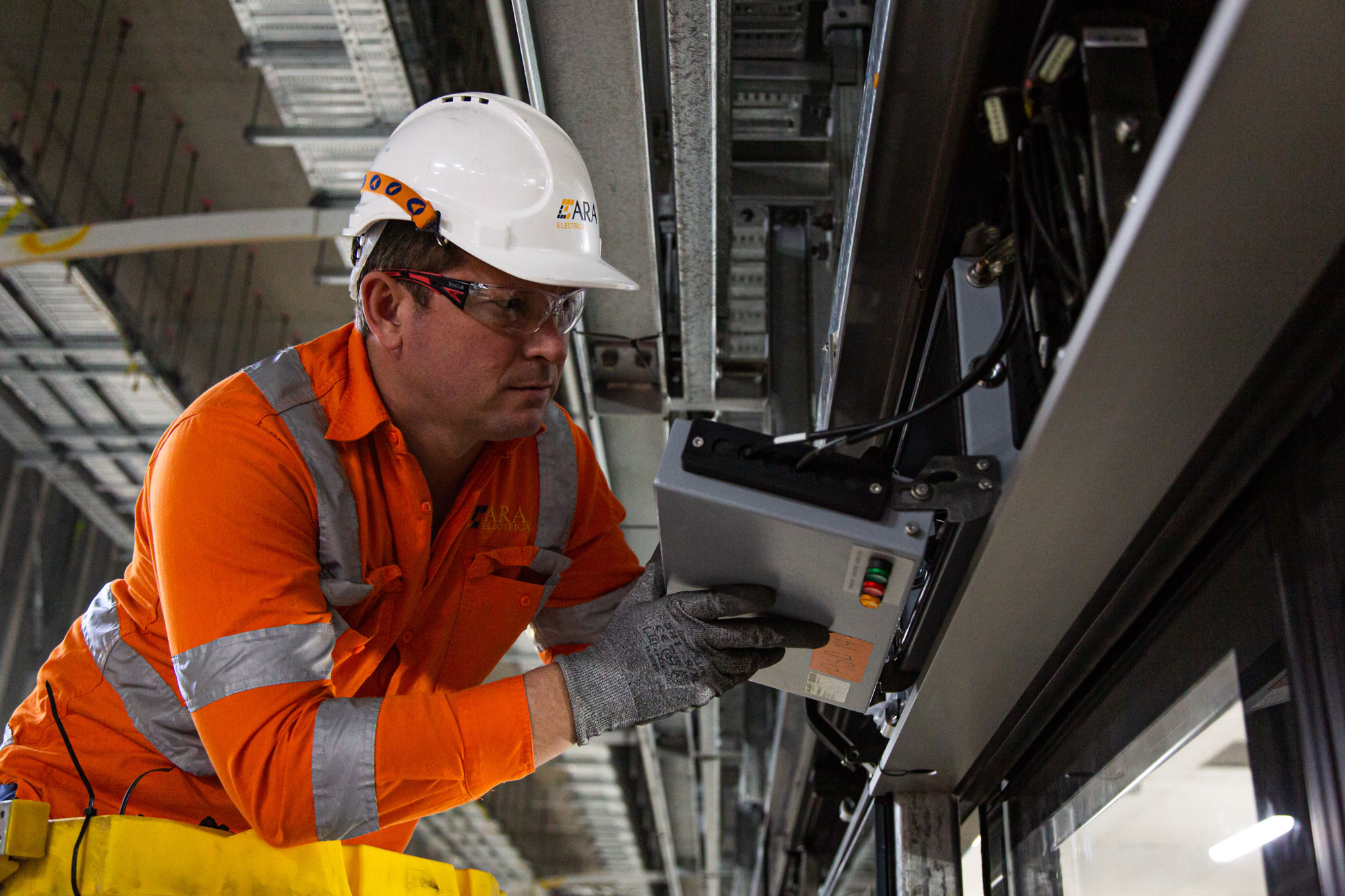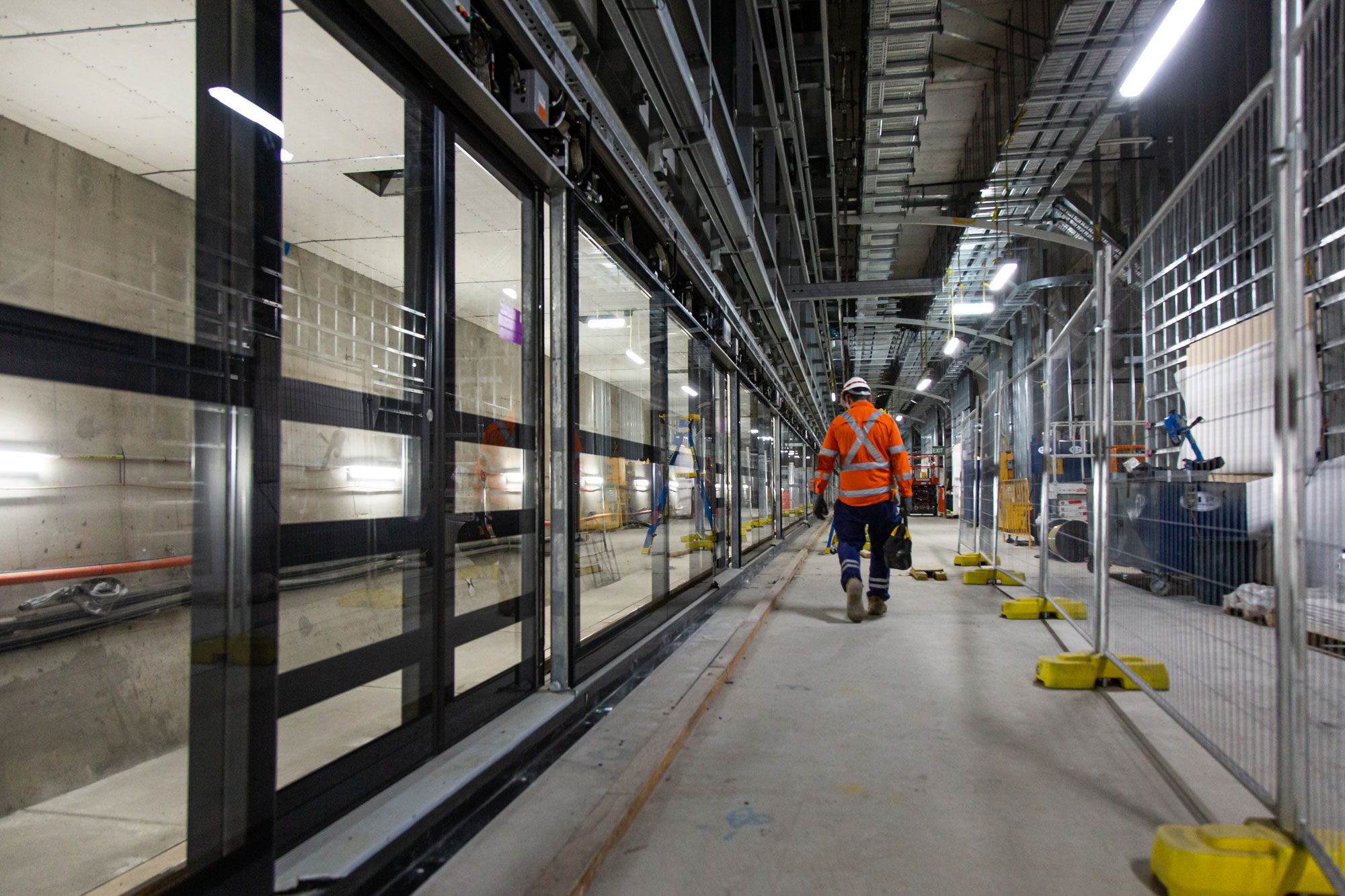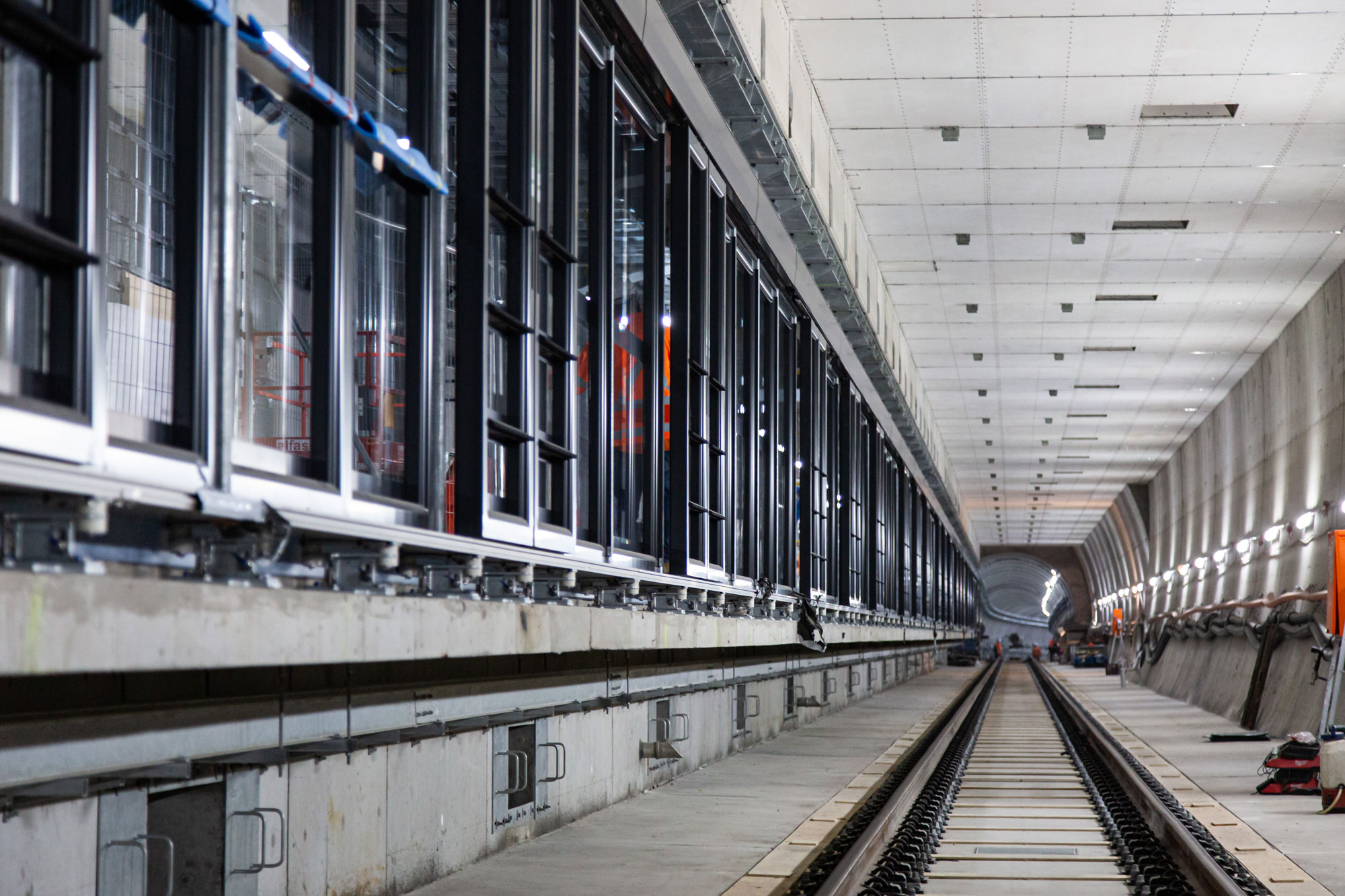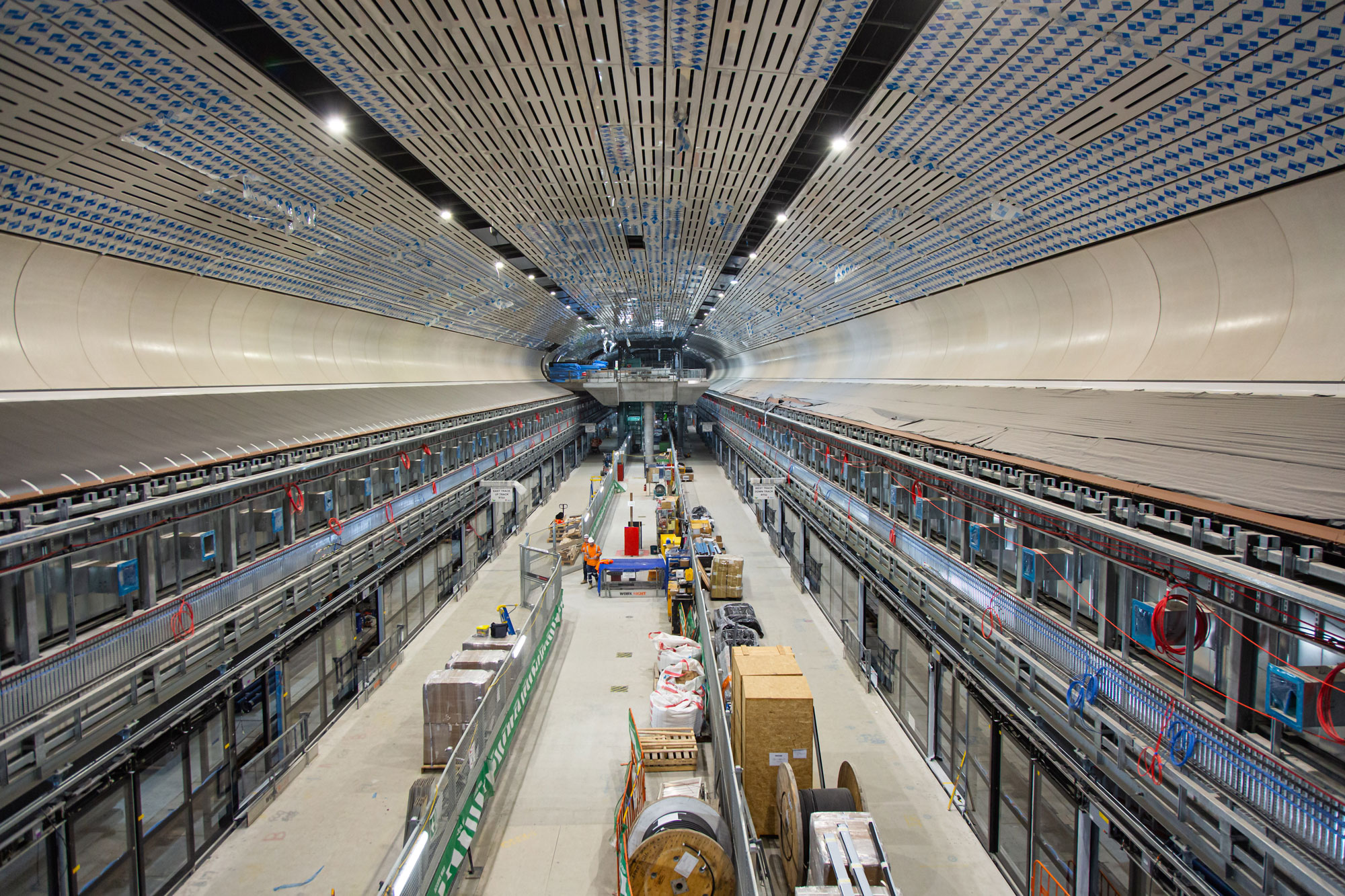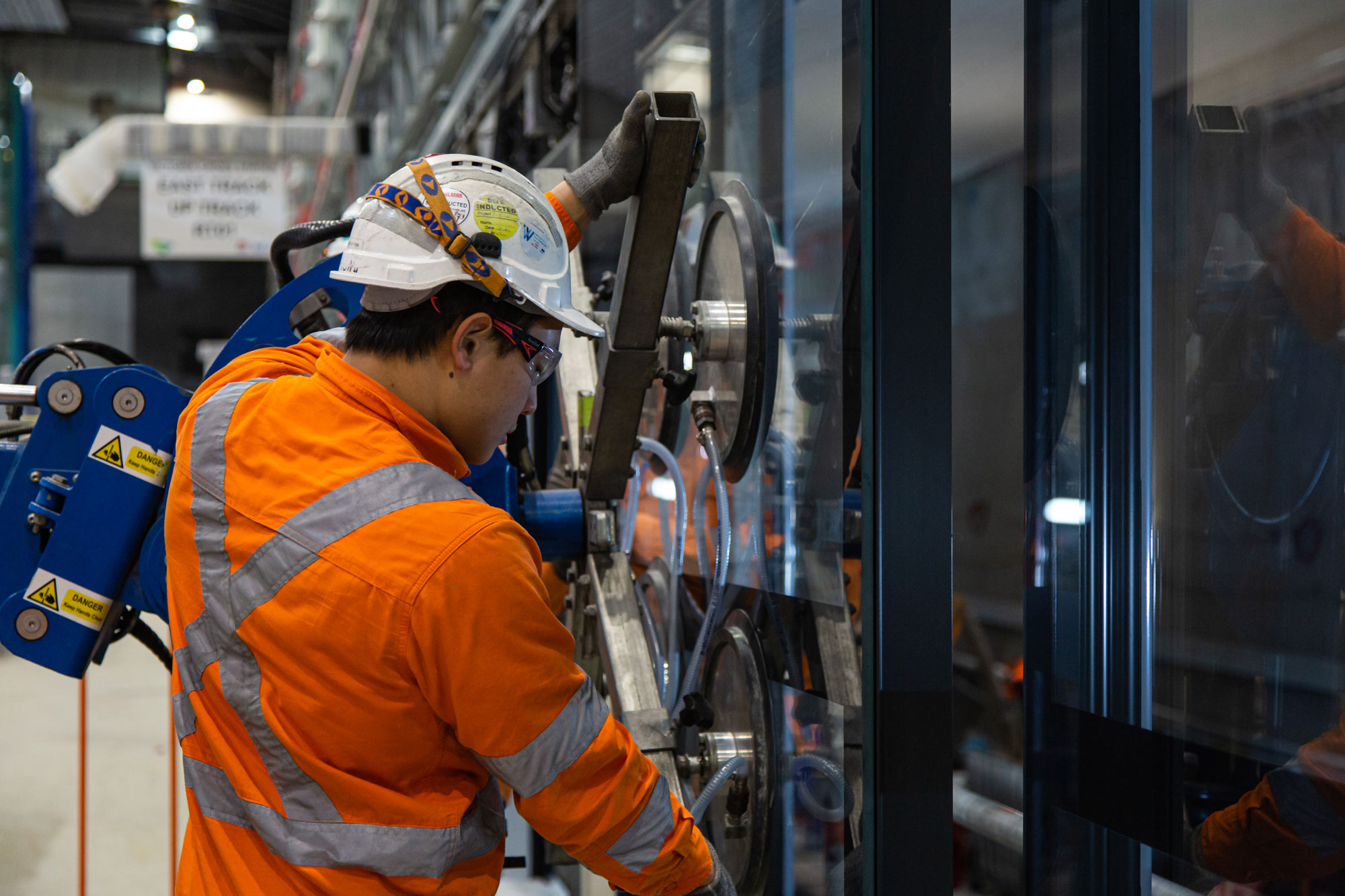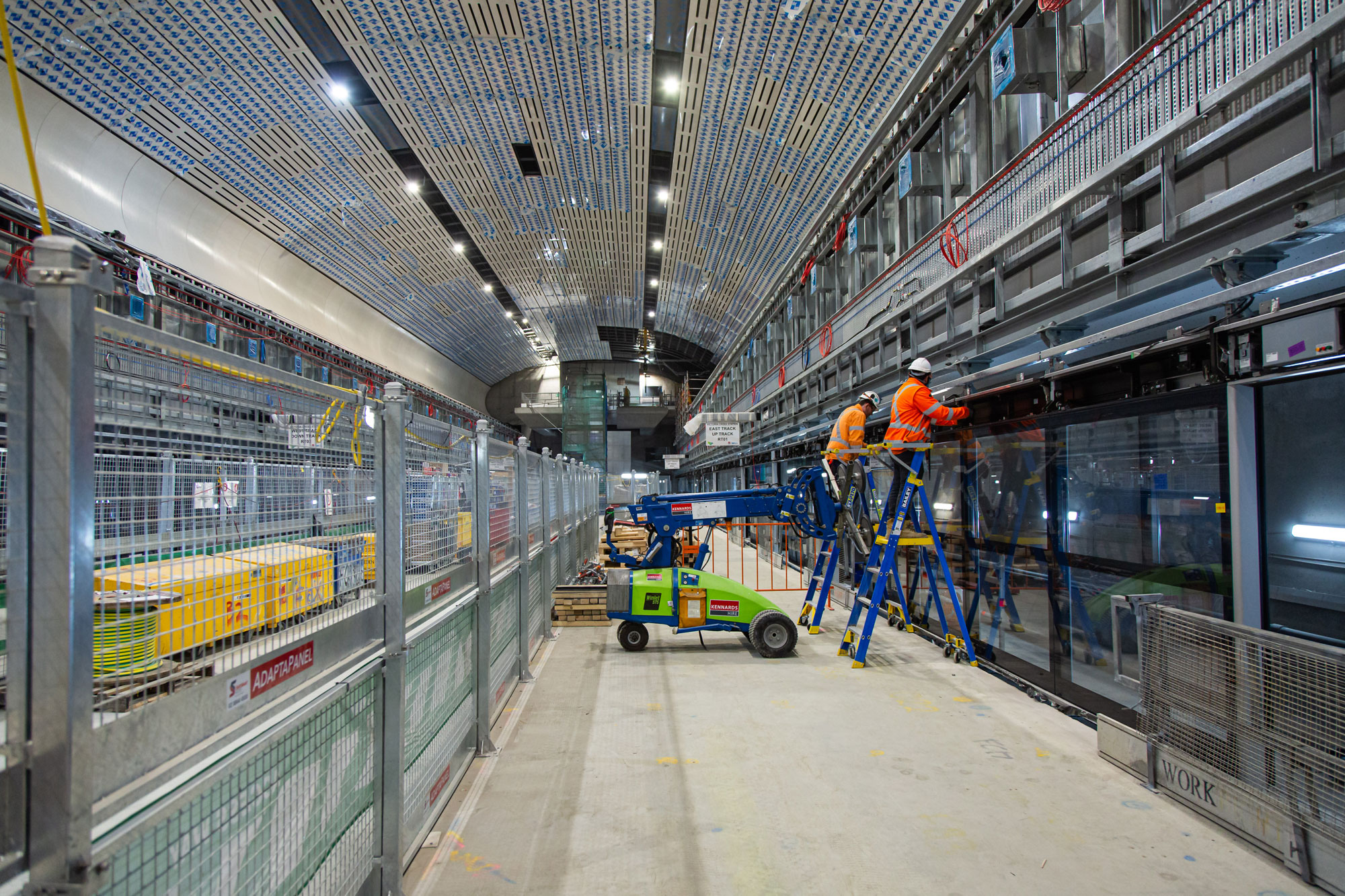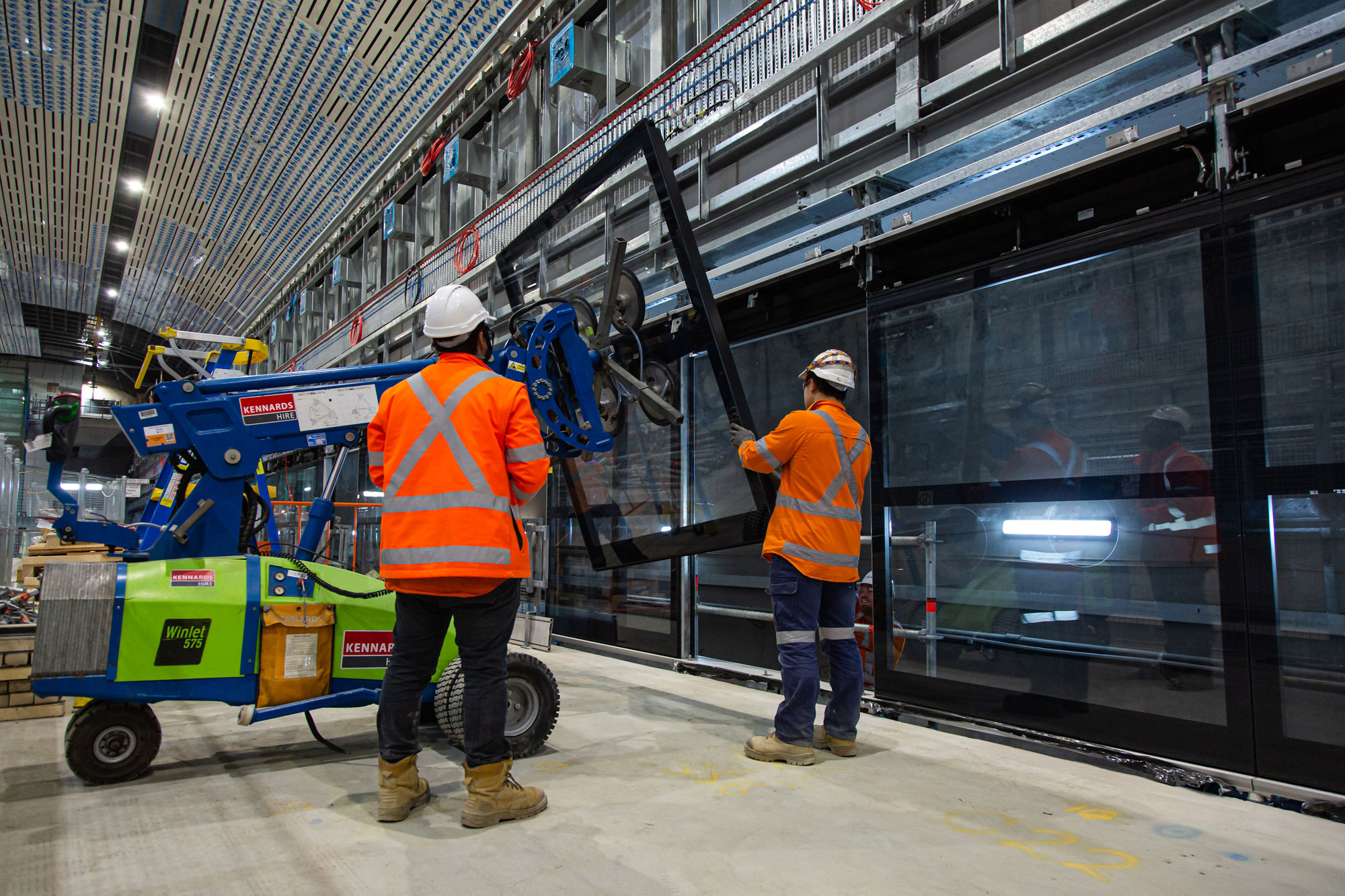The Sydney Metro project is a large-scale public transport infrastructure project in Sydney, Australia. This project involves the construction of a new metro system comprising multiple lines and stations. The project is aimed at improving public transport connectivity and reducing traffic congestion in the city.
ARA Electrical has been responsible for the installation of the platform screen doors for the Sydney Metro Southwest line, which is the first stage of the project to be completed. The state-of-the-art doors each weigh 200 kilograms and reach 2.7 metres in height to provide a platform-to-ceiling barrier between the track and underground platforms beneath the city of Sydney. The platform screen doors will also be installed at all southwest stations ensuring safe, reliable, and fast journeys for metro customers.
Platform screen doors are common around the world, but Sydney Metro is the first Australian railway to use them. All 46 metro stations across Sydney’s new 113-kilometre metro system will be fitted with platform screen doors. A total of 288 platform screen doors will be installed at Crows Nest, Victoria Cross, Barangaroo, Martin Place, Pitt Street, Central, Waterloo, and Sydenham stations. Following this project, ARA Electrical is also responsible for the installation of opal card gates within each station.
ARA Electrical has provided project management and engineering consulting services to help oversee the project and ensure the highest standards are met. The management services include providing technical expertise and advice on a range of issues, such as systems integration, risk management, and quality assurance.
This project is another of a long line of successful ARA Electrical projects during the past twenty-two years. In ARA’s initial year of operations in 2001, a small but successful low voltage electrical contracting and service business in western Sydney was acquired. From that beginning, the ARA Electrical Division has grown to be a business doing more than $157 million of work annually. The work today includes low voltage, high voltage, communications and data cabling, and the manufacture of switchboards and switch rooms with more than 500 skilled employees.
